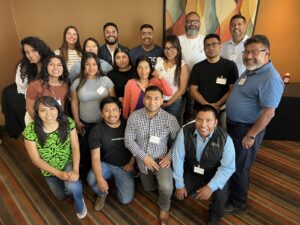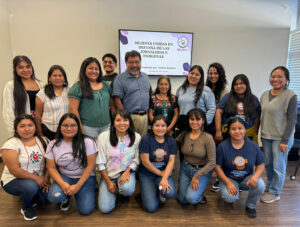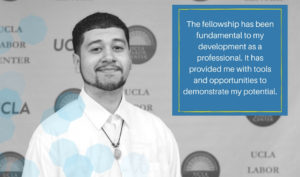
On Sept. 10, more than 250 staff members from California’s state agencies gathered in Visalia for a day-long training dedicated to strengthening support for Indigenous farmworkers. The event was a rare and powerful opportunity to bring together experts, advocates, and frontline workers from across the state to learn, reflect, and strategize around one of California’s most vital—yet often marginalized—communities.
Indigenous farmworkers, who play an essential role in sustaining California’s agricultural economy, face unique challenges that create gaps in achieving fair treatment and guaranteeing their labor rights. Addressing this issue requires approaches rooted in cultural understanding and respect.
Dr. Gaspar Rivera-Salgado, project director at the UCLA Labor Center and director of the UCLA Center for Mexican Studies, led the first major discussion of the day, offering historical and cultural context about Indigenous migration. He emphasized that the migration of Indigenous peoples from regions across Mexico and Central America is not just an economic story, but also one of resilience and survival. Too often, Indigenous farmworkers are rendered invisible in broader narratives, he explained, because their languages and identities do not fit neatly into assumptions about Latino or Spanish-speaking communities.
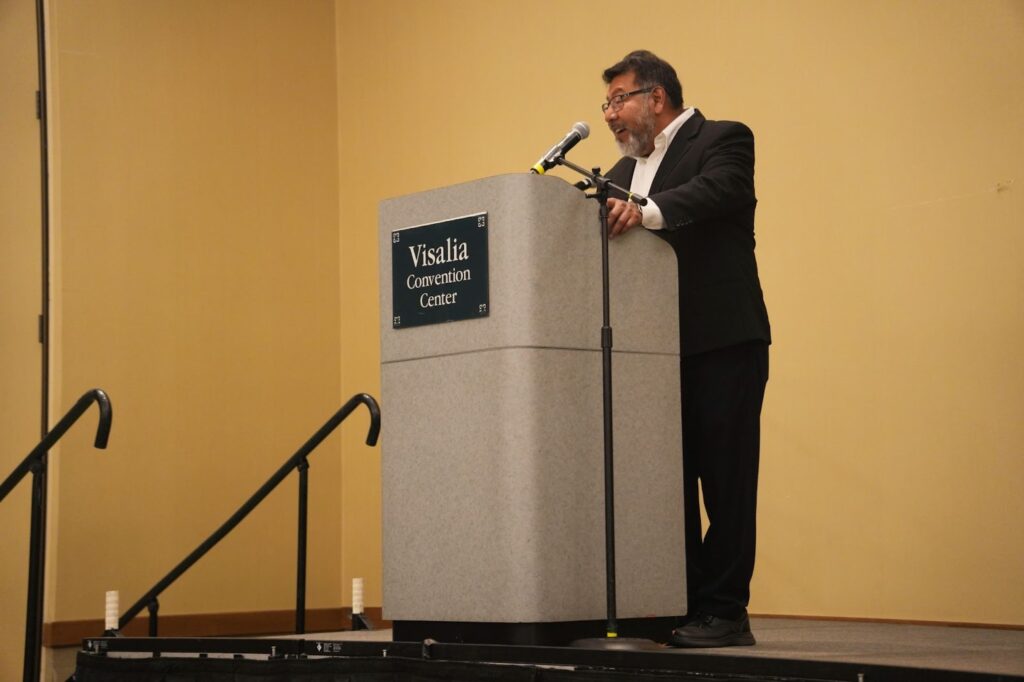
“Cultural sensitivity means seeing and respecting Indigenous identity in its own right,” said Rivera-Salgado. “We cannot assume that one language or one perspective represents all farmworkers.”
Norma Ventura, Indigenous program director at California Rural Legal Assistance (CRLA) in Fresno, highlighted the legal landscape in labor rights issues that Indigenous farmworkers confront daily. She described cases of wage theft, unsafe working conditions, and intimidation, while pointing out the particular barriers that arise when workers cannot easily access legal help due to language differences or fear of retaliation.
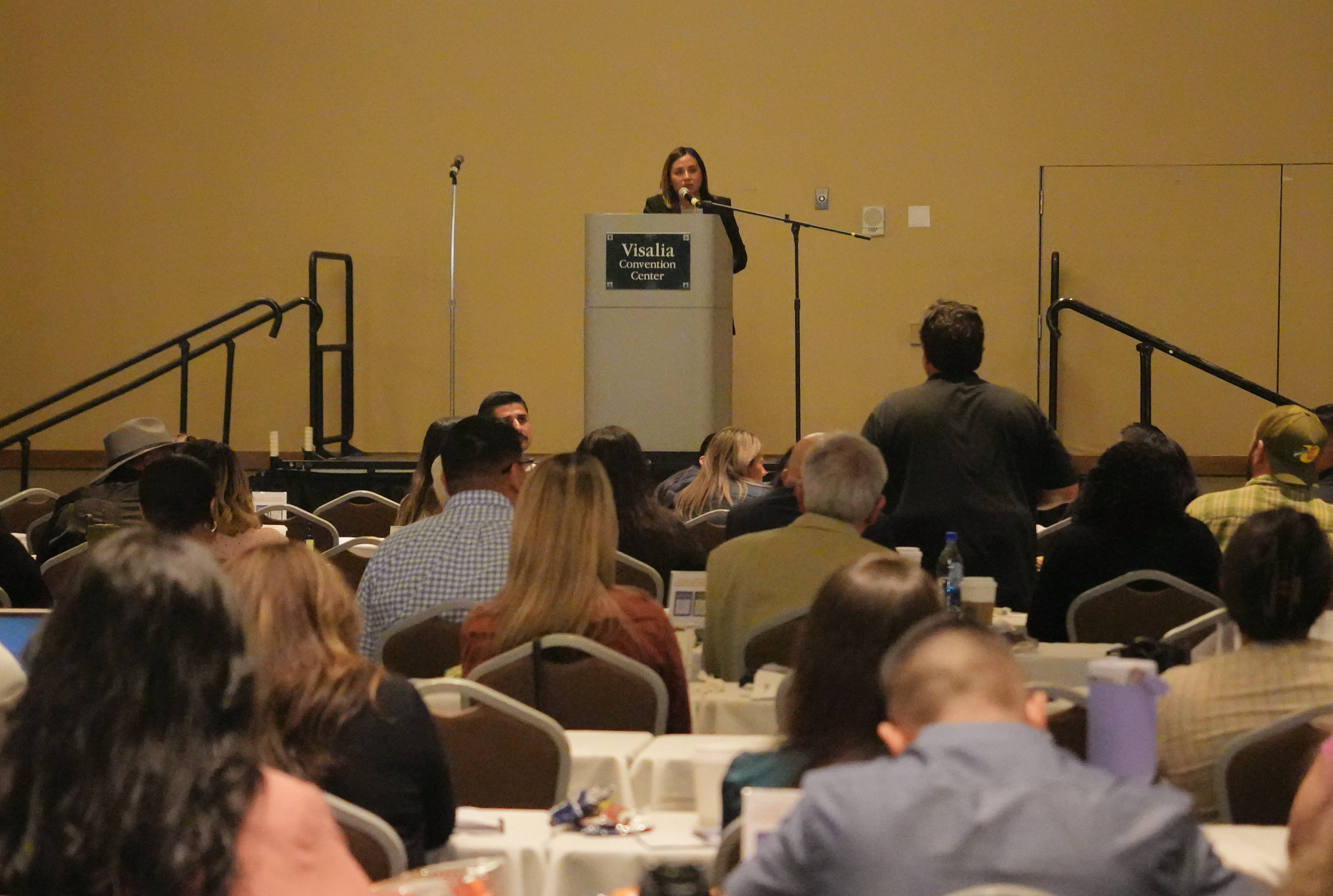
“When workers cannot speak the language of the system, their rights are often silenced,” Ventura noted. “Our job is to make sure the law protects them as fully as anyone else.”
After a mid-day break, participants returned to hear from Sarait Martinez, executive director of the Binational Center for the Development of Oaxacan Indigenous Communities (CBDIO), and Amalia Bernardo, CBDIO’s farmworker justice program manager. Together, they shared practical strategies for agencies committed to improving their work with Indigenous populations. Drawing from their organization’s experience in Salinas and Fresno, they illustrated how community-led approaches—where Indigenous voices guide program design—are far more effective than one-size-fits-all models.
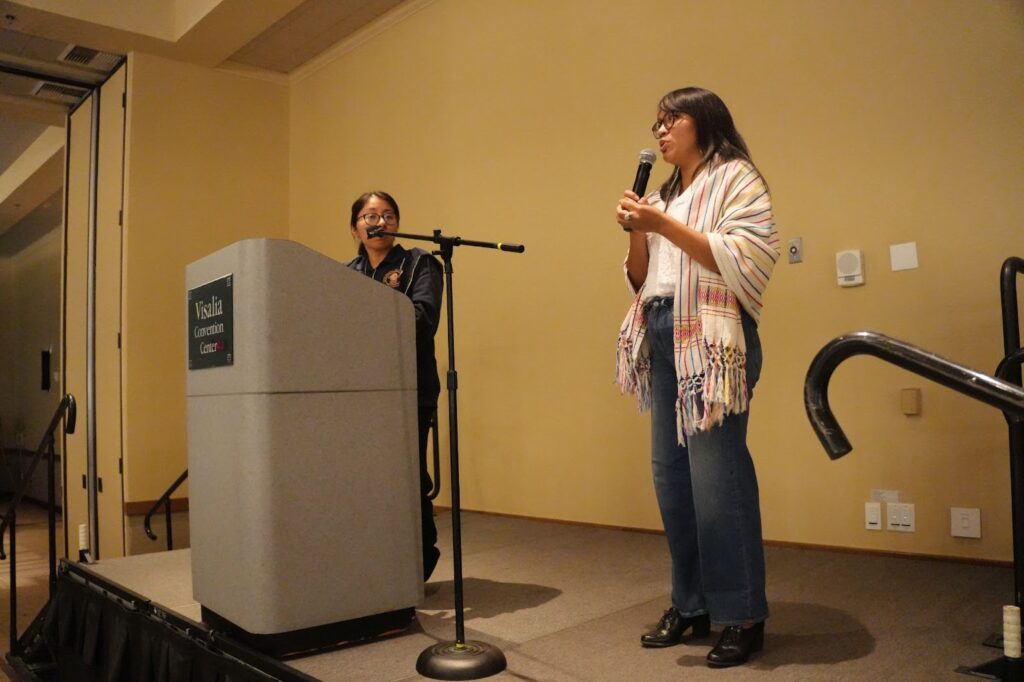
“If the community is not leading, we are missing the point,” Martinez emphasized. Bernardo added: “True equity begins when Indigenous workers see themselves reflected in the solutions being offered.”
The afternoon continued with a powerful session led by Juvenal Solano, organizing director with the Mixteco/Indígena Community Organizing Project (MICOP) and experienced bilingual Indigenous-language interpreter, joined by Fernando Martinez, MICOP’s organizing manager. Together, they spoke about the critical role of interpreters in protecting labor rights.
Solano and Martinez explained that interpretation goes far beyond word-for-word translation; it is about bridging cultural frameworks and ensuring workers fully understand their rights and options.
“An interpreter is not just a messenger—we are advocates who help workers be heard,” Solano explained. Martinez added: “When Indigenous languages are left out, justice is left out too.”
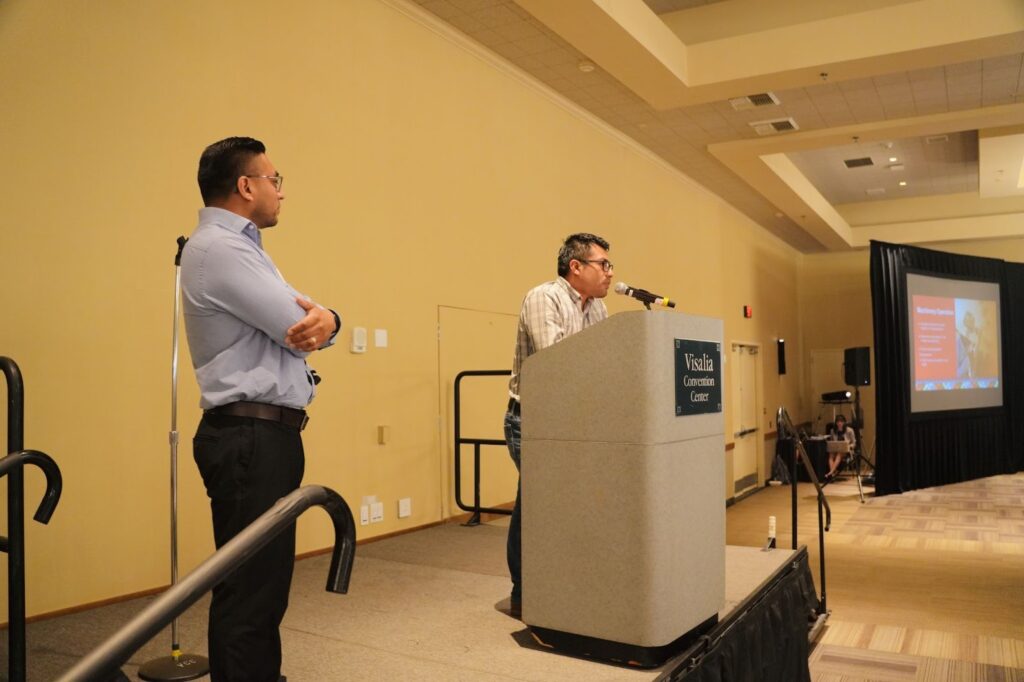
Participants engaged in lively discussions about how to apply what they had learned within their agencies, from building internal capacity to collaborating with community-based organizations. At the end of the training, people had space to reflect on the knowledge they had gained and the responsibility they now carried. Many expressed gratitude for the opportunity to learn directly from leaders who have spent years advocating for Indigenous communities and left with knowledge on how to implement these learnings in their work fields. The exchange of ideas revealed both the complexity of the work ahead and the determination in the room to take concrete steps forward.
Throughout the day, it became clear that collective recognition of the fact that supporting Indigenous farmworkers requires more than compliance with policy—it demands equity, respect, and culturally responsive practices. The gathering in Visalia was not just about professional development; it was a call to action. With over 250 agency staff in attendance, the event signaled a shared commitment to breaking down barriers and building systems that truly reflect the dignity and contributions of Indigenous farmworkers.
The conversations and strategies shared in Visalia will ripple outward, shaping agency practices and informing policies across California. Most importantly, the day reminded everyone that lasting change begins with listening, learning, and ensuring that Indigenous voices lead the way.
